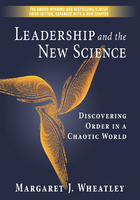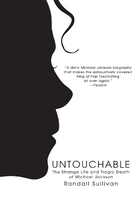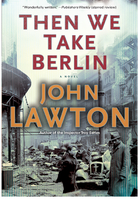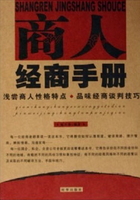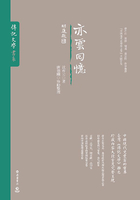I remember Judge McBryde saying "life," and Mom screaming over and over, "You can't do that! You're not God! You can't take someone's life."
-Billy Jackson, son of federal prisoner Joe Jackson
In the classic game Monopoly, the square called "Jail" sits ominously in a corner of the board. It's a hole into which an unsuspecting player might fall after an unlucky roll of the die, or the drawing of a bad card, or simply stumbling upon a space marked "GO TO JAIL" while ambling along the path to riches or ruin. Once you've been "sentenced," you've got just three possible routes out of your lonesome confinement: luck (rolling doubles), privilege (a Get Out of Jail Free card), or money.
But once in a while, players stuck inside the jail square have company. A pale green space clings to its outward-facing perimeter: a kind of dry, liminal moat between Jail and the edge of the board, inscribed with the words, "Just Visiting." A player who happens upon Jail without being mandated there isn't punished, but must merely spend a brief turn in the square, then get along on her way to other squares and other ventures, as if it had never happened.
However, in real life the vision of prison isn't over for family members after they exit the visiting room, or hang up the phone, or put the letter back in its envelope. The fact of a loved one's incarceration can take on a vacuous life of its own, rambling along invisibly, parallel to yours, inhabiting your sleep, your daydreams, and your minute-to-minute fears and imaginings. It's sometimes difficult to whisk your mind back to your own reality and live visibly in the present while they are-as Wisconsin prisoner Miguel Segarra puts it in a letter-"stuck in the past."
"Life Has Never Been the Same"
In talking to families of incarcerated people-and then trying to write about them-a hard-to-shake anxiety tugs at my brain and my fingertips: "What's the ending ?" One author I spoke with when I began working on this book advised me, "Keep in mind that you're writing a book for Americans, and Americans like a happy ending.... Or, at least, a hopeful ending." But for a lot of people embroiled in the system, there's no narrative arc, no reassurance of a liberated tomorrow. The very nature of incarceration ordains an impediment to forward movement-and that impediment is frustratingly vivid to family members on the outside, who witness the rest of the world rushing forward firsthand.
This dissonance bubbles to the surface when I speak with Yvonne, ex-wife of Joe Jackson, a pen pal of mine who is serving life for a meth distribution scheme undertaken to raise the $250,000 to pay for his son Cole's life-saving bone marrow transplant. Joe divorced Yvonne three years into his imprisonment, telling her he wanted to set her free-but she still holds on. "They took the one person that had my back no matter what.... They took my best friend, and life has never been the same," she tells me. "We live in our own prison out here, one that never ends."
Joe has been in prison for more than eighteen years.
Joe's daughter, April, describes to me how the saga began, during an early-morning breakfast when she was in ninth grade. It was still dark outside, the house hushed, and she had just seated herself at the table to eat a bowl of cereal. Then came a blaring loudspeaker-voice from outside the front door: "Come out with your hands up!" April yelled for Yvonne, who lay asleep in her room with baby Cole; he slept curled up next to her so she could tend to the protruding catheter in his heart when he woke in the night.
There was no slowing down the SWAT team: Two hundred officers swarmed everywhere in the house, in the woods outside, all down the road. They burst through the doors, searching futilely for April's absent dad, tearing through papers and pulling Yvonne onto the porch. "One of them gripped me like a sack of potatoes and carried me to the driveway," she says. "They told me to shut the dog up or they would shoot him.... From that day forward, my kids have had a fear that someone was watching them, and they all slept with me til they were older. It takes away all the security in your own home."
In this small Texas town of fewer than 1,500 people, the scandal was big news. Rumors took flight immediately ... and they never quite landed. "I learned we had elevators leading to an underground drug lab with an elaborate network of tunnels that went from our home down to my grandmother's.... Trust me, I would have found that had it ever existed," April recounts, recalling some of the worst items of gossip. "Apparently, there were also four dead bodies uncovered in our backyard."
At the age of fourteen-for many of us, the height of caring what people think-April watched as long-standing friendships evaporated within days. Parents barred their kids from coming over to her house, and some even told their children not to talk to April or her middle brother, Billy. Yvonne got the cold eye, too-fellow parents wouldn't sit next to her at the kids' basketball games, and she was voted off the PTA in a closed-door meeting. She says, "There was rumors about me and the kids, always."
The word "stigma" originally referred to a brand, a mark burned into human skin with a hot iron, commonly imprinted on the skin of enslaved people or "criminals."[31] The word hasn't evolved much in the 400 or so years since its first usage, though the mark is now social instead of physical. And in the current era, at least when it comes to incarceration, the "branding" can be contagious, smudging off on families in ways that shift both their public image and their personal sense of self.
"The Bills Never Stopped"
Joe Jackson was handed the maximum possible sentence for his offense: three "lifetimes," plus an extra thirty years piled on top. As they wobbled back into their own lives after the sentencing, Yvonne, April, and her two little brothers struggled for footing. Financially, things were a mess.
It's not like the Jacksons had been living large in past years; April grew up in a trailer for the first ten years of her life, and says, "Dad barely made enough to get by." But Joe's imprisonment threw the family into a deeper, shakier pit of financial unpredictability. Their car was repossessed, Cole's medical bills piled up to the ceiling, and Yvonne waged a constant battle to keep their house while working overtime at multiple jobs: a deli, house cleaning, construction. "Joe made our living so I could take care of Cole," Yvonne says. "Without him it was me trying, and some days the bills never stopped."
It's a common turn of events: While prisoners are "stuck in the past," family members are often left floundering to make up lost income. Most incarcerated parents were employed prior to their arrest, according to a 2005 study by the Urban Institute.[32] (And that doesn't count money the incarcerated person was bringing in by "illegitimate" means-also often used to put food on the table.) Sometimes, the family has lost its only income source and must start from scratch.
Amid money troubles and the strain of separation, family tension continued to tighten for the Jacksons. Yvonne and Joe divorced, with Joe insisting that it wasn't fair for him to keep Yvonne tethered to him while he waited out the long years to die in prison. April pulled away from her mom, and, desperately seeking closeness, plummeted into a relationship with a controlling boyfriend who rapidly turned abusive. It took two and a half years to disentangle herself.
Meanwhile, April's brother Billy slid toward violence himself. Crushed and confused by the loss of his dad-and angered by his classmates' derision of his family-he got into frequent fights. Frantic at the possibility of another family member straying down a troubled path, Yvonne yanked him from school, homeschooling him on top of her other jobs (including, of course, caring for her chronically ill younger son).
Yvonne's concern was no delusion. Boys whose parents are incarcerated are five times more likely to become incarcerated themselves,[33] and kids of prisoners are more likely to go to prison than to graduate from high school.[34] The effects often hit early on: Between 30 and 50 percent of children placed in juvenile detention centers have at least one parent who's been to prison.[35] According to a report by The Sentencing Project, "The arrest and incarceration of parents ... takes an emotional toll on children, leaving some psychologically traumatized, fearful, anxious, withdrawn, socially isolated, grieving, or possibly acting out their feelings in disruptive ways."[36]
Of his dad's incarceration, Billy says, "I think it caused me to grow up way too fast. I was twelve when I started working full time, started dating a girl when I was fourteen and was married to her at nineteen. I never really had a chance to be a kid, so when I was twenty, I started acting like one, and got in a lot of trouble and pretty much lost everything, including my now ex-wife, by the time I was twenty-one." As for April, she fled her small town as soon as she could. These days, she completely avoids it. She doesn't want to respond to the persistent "how's your dad doing?" inquiry. It always has the same answer.
April hasn't given up hope, though: She channels her frustrated energy into fighting for her dad's release, applying for commutations, reaching out to public figures, connecting with activists. Meanwhile, Joe mails me a family picture taken on July 14, 2013. Like every photo for the past eighteen years, it's set in a visiting room. Joe's in his prison khakis, flanked by his children, including Cole, who, thanks to his lifesaving transplant, is alive, healthy, and smiling at twenty-three. A city skyline-a faux backdrop made available for visiting-room snapshots-sparkles behind the huddled group. "If I didn't have my family, I'd just curl up and go to the next level," Joe writes, signing off with his usual closing: "Your friend in a cage."
Moving Out, Punching Holes
Even after years of hearing family members' stories of loss and disconnection, each one still pricks me with weird surprise. I'm surprised to be surprised: Most of my brain, of course, knows way too well that incarceration has reverberating effects, hitting and marking all sorts of other people besides those in prison them selves. But a part of my mind still inhabits the pervasive, official logic of the prison-industrial complex, and that logic is all about subtraction. Prison's role in society, the logic goes, is to toss away the bad eggs so they can't poison us-so we don't even have to see them. With those eggs cleared, we seamlessly close up the gaps and carry on, clean and whole.
The surprise pops up when the broken seams are revealed-the way that incarceration rips open new holes in the social fabric of families and communities outside, severing intricate networks strung together in ways that are observable only upon their breaking. Instead of eggs, we are tossing away people's mothers, fathers, daughters, sons, brothers, sisters, partners, friends.
Those split ties are concentrated heavily in poor communities of color. While the fragmentation of black families (especially the departure of fathers) has, in dominant political and cultural spheres, often been attributed to personal failings, Michelle Alexander points out, "Hundreds of thousands of black men are unable to be good fathers for their children, not because of a lack of commitment or desire but because they are warehoused in prison, locked in cages."[37]
When a loved one is locked up, those left behind are often less able to participate actively in community life and in the economy, strained by severe shortages of money and time. There are sometimes more subjective forces tugging them away from their communities, too: shame (on their end) and fear or suspicion (on their neighbors' side of the fence).[38] Families' self-isolation is compounded by the fact that some of their neighbors-such as Yvonne's fellow basketball parents inching away from her on the bleachers-aren't crazy about seeing them, anyway.
Often, family members relocate out of their communities either upon incarceration (in search of more affordable housing, since they've lost an income-earner) or afterward (in hopes of a less stigma-tainted transition).[39] And as they walk away, they leave behind friends, schools, religious groups, and support networks-those ties that link families to the world.
In communities where incarceration is common, these ongoing removals, isolations, and relocations can prove a formidable barrier to building a stable, close community in which people know each other and look out for their neighbors. Researchers Todd Clear and Dina Rose, who have studied incarceration within the context of families and communities, write that the way in which imprisonment disrupts connections can actually make harm and conflict more likely. The researchers frame the effects of incarceration as a type of "social disorganization," a process that interrupts lives, shaking and scattering the collective life of a community. An important part of preventing violence, according to Clear and Rose, is maintaining "informal social controls": structures besides laws and law enforcement.[40] These are things like neighbor interaction, community groups, close friend networks, and peer pressure (the good kind!) from loved ones.
So, when lots of people are moving in and out of a neighborhood-or isolating themselves to the point that they may as well have moved out of the neighborhood-the effectiveness of those informal controls plummets. It's hard to maintain strong community networks if you're not even sure who's in your community. Add to that the fact that those who are incarcerated have themselves "moved out," abruptly and with no choice in the matter (Clear and Rose call this process "coercive mobility"), punching holes in the networks they left behind.[41] This phenomenon is deepest felt in poor communities of color, where high proportions of people are incarcerated.
Barbara Fair, the New Haven mother whose seven sons have all been incarcerated, hails from one such neighborhood. Unlike April Jackson's small-town "friends," many of Barbara's neighbors have provided empathy and support: "Going to prison ... was so common in my community that there wasn't much of a raised brow about that," she says. This commonality lends families in neighborhoods with high concentrations of former prisoners a unique base of communal support. If almost everyone has a relative or friend who's been incarcerated, they're less likely to judge.[42] But residents are so supportive, in part, because they know all too well the venomous power of the stigma that runs thick outside the bounds of their neighborhoods-a stigma that captures prisoners, their families, and their communities in its widening net, isolating them in a sort of external jail of their own, in which actual imprisonment seems devastatingly predestined. As legal scholar Dorothy Roberts puts it, "Because all of the children in these communities have some experience with prison and may expect to be behind bars at some point in their lives, prisons are part of the socialization process.... Incarceration is a 'rite of passage' imposed upon African American teenagers."[43]
A Landslide of Consequences
The criminal justice system has coursed through Barbara Fair's life for decades, starting when she was a teen and her brother was sentenced to prison. Soon after, Barbara herself was incarcerated for a couple of weeks-delivering a sharp premonition, she says, of emotions to come. She tells me, "I can still feel the pain and humiliation that cut through me." Barbara's kids grew up in the thick of the drug-war years and could serve as poster children for the strangling effects of that "war" on poor, black families. Each has been locked up for a drug-related conviction. "The greatest factor influencing my sons ending up in prison is the fact that they are young African American males, and thus the targeted commodity for the prison industry," she says.
Barbara explains that not only are black males a targeted commodity, they're an assumed commodity; they're viewed as suspicious from youth on up. Her words mirror an interview I did with Mariame Kaba, the founder of Chicago's Project NIA, an advocacy and education organization aimed at ending youth incarceration. Mariame spoke of how kids of color begin their lives weighed down by an obligation to prove their "innocence." Unlike their white counterparts, their "guilt" is presumed from the start. "Black and brown youth are born with criminality inscribed on them," Mariame said. "When they commit crimes, that's just confirmation. Their job is to prove they're not criminal." On top of this assumption of criminality, family members of prisoners are often handed a whopping serving of guilt-by-association. Siblings often have it the worst, according to Todd Clear, who interviewed a group of families in an impoverished, mostly black neighborhood in Miami. In Imprisoning Communities, he writes, "Siblings often bear the brunt because there is the idea that if your sibling could be a criminal, then you could too."[44]
As her sons were carted off, Barbara's life quickly molded itself around prison and its immediate effects: the weekly visits to various facilities-each at least forty-five minutes from home-the expensive phone calls, the panic attacks, the money troubles, the time constraints, the sadness.
Even after her sons came home, she wrestled with the lingering reverberations of their imprisonment. By the time Barbara and I get to know each other in 2013, all of her sons have been released, but her youngest-deeply traumatized by his time behind bars, some of which was spent in isolation-currently lives in a psych ward and still depends on his mother for constant support.
Barbara's ordeal is just one example of how the incarceration of large numbers of men (especially black men) generates a landslide of consequences for women. In an interview, gender and criminology scholar Beth Richie tells me, "Clearly one of the 'untold stories' of mass incarceration is the way that women are disadvantaged. The most obvious part is their own incarceration. But... there is also the problem of women supporting men who are incarcerated and when they are released. It is visiting, housing, feeding, protecting, hiding, taking the rap for them. All kinds of things have women 'working' to create or maintain stability when men are incarcerated, or when [their] kids are incarcerated."
Barbara Fair carried on this support work routine, sevenfold. But amid the sleepless chaos, she gleaned a panoramic view of the system in which she was entangled-and became convinced that the best way to cope was to dig in and fight it. In the years since, Barbara has jumped into the struggle full-force, traveling the country to speak out about bail, plea bargains, sentencing, juvenile justice, and the war on drugs. She's reached out to Yale students to collaborate on projects like "The Worst of the Worst," a video aimed at exposing the harmful effects of solitary confinement. She led a fight to oust a corrupt New Haven judge, she held a "Biking While Black" protest to speak out about the anti-black profiling of bikers on the street, and nowadays she's working to set up dialogues throughout Connecticut between victims and people who've caused harm.
Yet after thirty years, the challenges are still just beginning, says Barbara. She's thinking long-term-and big: "I have worked so hard at reform, and saw so little change, that I have come to the conclusion that revolution might be the only response to what is occurring in America relative to criminal justice and the prison industry it feeds."
The Incarceration Wish
At this point, I need to acknowledge an uncomfortable but prevalent conundrum: Occasionally, a family member's incarceration has its perks. For some families, the prisoner in question has posed a real threat in their lives. Most victims of domestic violence don't call the cops-often because they know that police involvement would make their situations worse, especially if they're people of color.[45] Still, one-half of stalking instances, one-fifth of intimate partner rapes, and one-quarter of intimate partner physical assaults are reported to police, according to the US Department of Justice's most recent survey.[46] Police intervention and incarceration may seem, for the folks who've been harmed, a chance to cut ties and build a safer life.
It's not a lasting "solution," of course; the person is almost always eventually released from prison. And the incarceration of the family member (and the loss of their income) often creates fresh problems. In fact, many victims become direct targets of state violence upon reporting harm by their partners, especially if they've attempted to defend themselves physically, and particularly if they are black or brown.
Beth Richie notes, "Black women who report male violence to state officials are more likely to encounter uninformed service providers, unsympathetic community members, and rigid representatives of the state who blame them for their experiences and ignore the structural preconditions that surround them and their families."[47] Still, in the prison nation, incarceration is presented as the official go-to means to separate people from those who have harmed them.
Likewise, families of people with addictions have been taught by decades of drug war policy to see incarceration as one of the few surefire means of separating their loved ones from their substance of choice. Even those family members who recognize that continued drug use in prison is sometimes possible tend to feel reassured. For the chunk of time in which an addict is locked up, loved ones may breathe a little freer. They may let go of a bit of that clinging terror that their daughter or son or sister or aunt or brother or uncle or father or mother might be sprawled on a street somewhere, unconscious, ticking away the lonely minutes until death.
Kayla's friend Jake, incarcerated at the time he writes to me, acknowledges that his mother has mixed feelings about his incarceration. "One thing I know for sure," he writes, "is that she can sleep at night now while I'm in here because she knows where I am. She knows I am 'safe,' or safer than I was while I was out in my madness where there was no telling if I was dead or alive for weeks at a time."
What exactly are we wishing for when we want someone close to us incarcerated? Maybe this question can only be answered with further questions, in this system mired in confusion and propelled by fear. Here are a few: Do we want them to stop hurting us? Do we feel prison would keep them safer? Do we want to freeze their spiraling criminal record, before they get in even worse trouble? Are we so angry at them that we just want them to go away for a while, reassuringly immobilized on the corner of the Monopoly board? Or do we feel that, when it comes down to it, clamped down under the force of the prison nation, there is just no other way?
Come October 2012, my family is tossing around these questions on an hourly basis. There's absolutely no danger that Kayla will physically harm us. But we can answer a weak and weary "yes" to at least a couple of the other questions. Four days after Kayla gets out of prison-two days after telling me that all she knows how to do is be incarcerated, one day after I proudly presented her with her brand-new Facebook profile-my mother finds her passed out on the bathroom floor, a needle stuck in her arm. A chilling and tear-ridden trip to the hospital follows.
Two days later, an old boyfriend of Kayla's, newly released from prison himself after doing time for residential burglary, has crept into my parents' house during the night to bring her heroin. My dad, jolted from sleep, slides open Kayla's closet door to discover this man standing there, silent but barely shaken. "Hi, Mr. Schenwar," Kayla's ex-boyfriend says.
My dad can't coax his body back to sleep that night, or the next, or the next. Dad is prone to cyclical, major depression, but at the time of Kayla's release, he's staved it off for twelve years, climbing to a rare point of joy and calm. The rest of us remark that he's "enlightened." But now he's scared-for Kayla and for the family-and he paces the house, shaky and sleepless, sinking back into depression.
Kayla is scared, too. In a wild, honest instant, she thrusts a bag of heroin into my mom's hands and says, "Take it. I don't want it in the house." My parents, flustered, discard Kayla's advice to flush it, since they don't want it traveling into the water supply; instead, my dad, gingerly clutching the bag, walks it over to the police station. The amount of heroin is minuscule-it's about a fifth of what a typical addict might use in a day-and after my dad conveys his circumstances, the police say nothing. Dad may have been the first person ever to appear in their station, unsummoned, to surrender a bag of heroin. Still, I wonder how their response would have differed had Dad been black.
A week later, my parents, Kayla, and I meet at a café for a disastrously executed half-intervention. It ends with me screaming maniacally, "Fucking asshole! You're ruining everything! Do you want to go back to prison? FINE! I never want to see you again!" Her limp, teary reply floods out before my rant is through: "Fine, bitch. I never want to see you, either!" We exit before we're banished, the other café-goers' eyes escorting us out the door. Leaning against my car in the café parking lot, Kayla and I half-hug and concede grumblingly that we love each other. Neither of us indicates that we actually do want to see each other again.
We talk soon after, though. Her calls come at dawn or late at night, wrenching me from sleep, and they're always the same: Each conversation balances itself on a thread of watery banter, sometimes toppling into hopelessness before one of us slams down the phone. At home with my parents, the fights are constant. Kayla's days are containers of empty hours; her job searches crumple on the spot. There's no way to cover up the three-year gap in her résumé where jail and prison have carved a gulf in her work life, and background checks ensure that she doesn't have a decent shot at even the jobs for which she's qualified.
On Christmas Eve, two and a half months into her parole, Kayla's hauled off to jail for retail theft. She calls my mom, then me, with the news. Number one: She's been arrested, and once she's sentenced, she'll more than likely end up back in the penitentiary. Number two: Her post-arrest urine sample has revealed some unexpected information-she's pregnant. Number three: Can one of us please post bail?
I talk to my mom, then my dad, then Ryan. Bailing Kayla out seems like a $500-steep exercise in pointlessness. She may get rearrested, and soon. (Her bond is $5,000, which means $500 must be paid to get her out on bail. Bail keeps you out of county jail while you're awaiting sentencing-but, of course, that's moot if you get picked up again.) Besides, we have reached the end of our collective ropes. We don't want her out. We don't want to pace our kitchens agonizing over her whereabouts, wondering if she's dead or dying; anticipating another near-overdose, another offense, another strike on her record, another trip to the joint. We sigh into the phone, reciting the events of the past two and a half months to each other, again and again, as if, this time around, we'll "solve" them. We don't post bail.

